Have you ever noticed how your phone’s battery seems to die faster exactly when you need it the most? Maybe you’re halfway through a long commute, waiting for a delivery update, or deep into a Mobile Legends match—then suddenly, that dreaded red battery icon shows up. It’s always when you’re not near an outlet. Wild, right?
That’s why in 2025, a power bank isn’t just a nice-to-have, it’s an everyday essential. Whether you're a student managing back-to-back online classes, a remote worker chasing deadlines, or a content creator living off your phone, a good power bank means freedom. No more asking strangers for a charger. No more panicking at 5%.
In this guide, we’ve handpicked the 10 best power banks in the Philippines based on real ratings, reviews, and specs that matter. Whether you're looking for pocket-sized backup or a massive battery beast, this list has something for everyone.

Editor
Lloyd Kelly Miralles chevron_right
Table of Contents
Buying Guide: How to Choose A Power Bank in the Philippines
Choosing the right power bank is essential. This buying guide will walk you through the key factors to consider, ensuring you select a portable charger that perfectly suits your needs and keeps your devices powered up whenever and wherever you are.
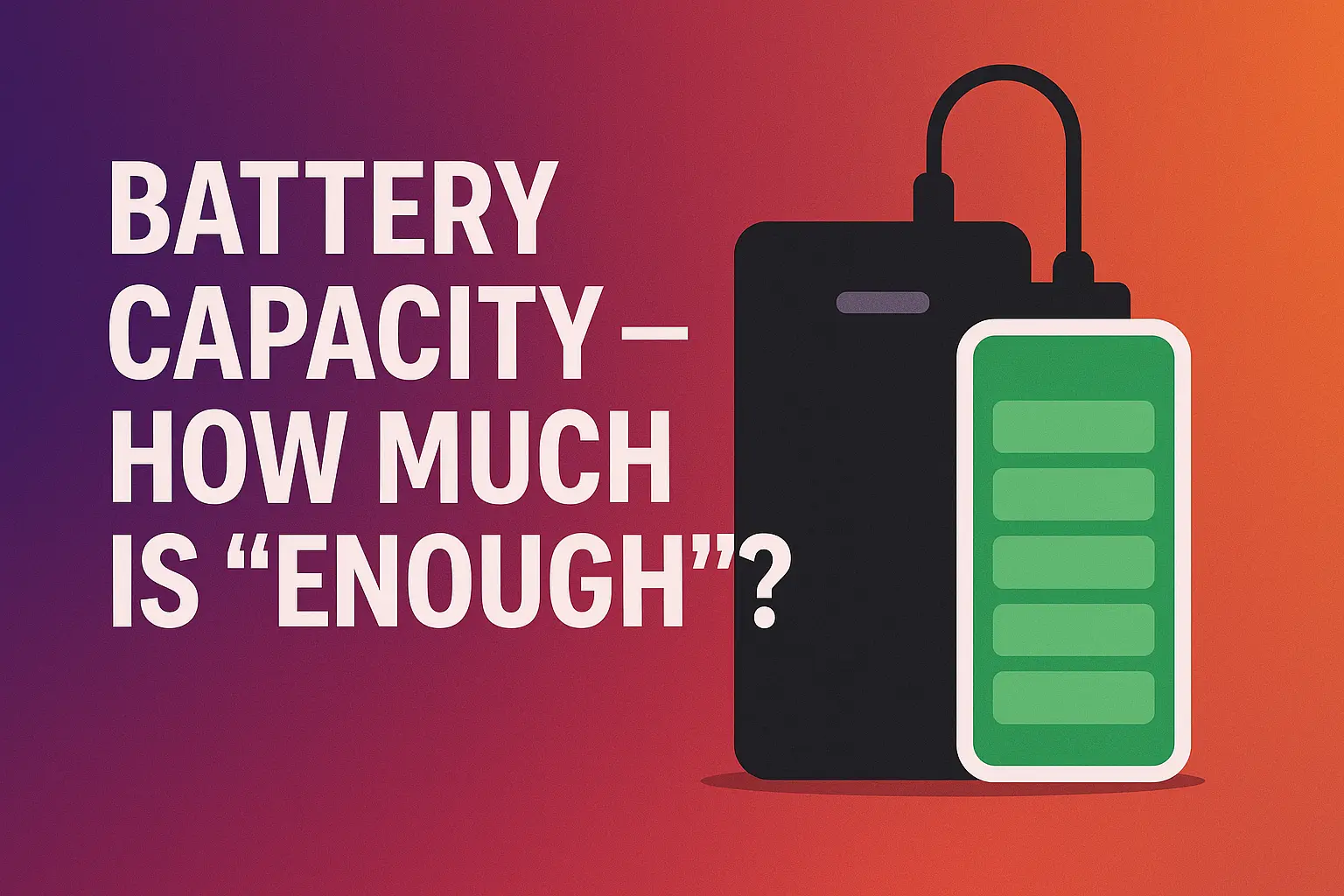
How Much Battery Capacity Do You Really Need?
- 10,000mAh: Good for 1–2 full phone charges. Ideal for commuters or light phone users.
- 20,000mAh: 3–4 charges. Perfect balance of size and power. Ideal for students, workers, content creators.
- 30,000mAh–60,000mAh: Great for travel, power outages, or sharing with family or barkada.
- 60,000mAh and above: Considered power station level. Great for emergencies or off-grid life.

What’s the Deal with Fast Charging?
Look for:
- 18W–33W: Fast for most phones (especially Android)
- 65W–150W: Needed for laptops, tablets, and fast-charging iPhones
- PD or Quick Charge support: For smart charging management
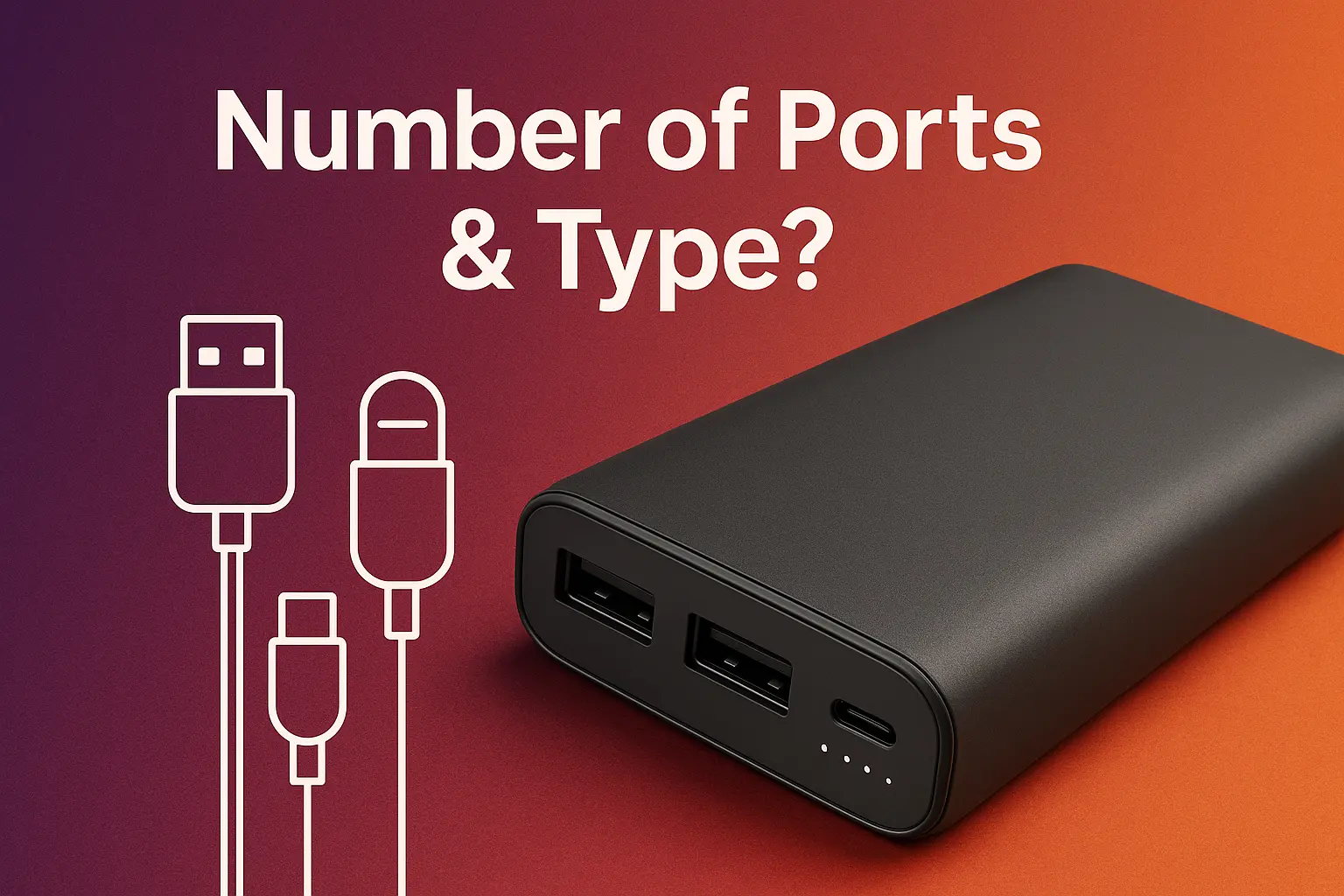
How Many Ports Do You Need?
More ports = more flexibility:
- USB-A: For older cables
- USB-C: Newer standard, supports fast charging
- Built-in cable: Very handy, especially for commuters
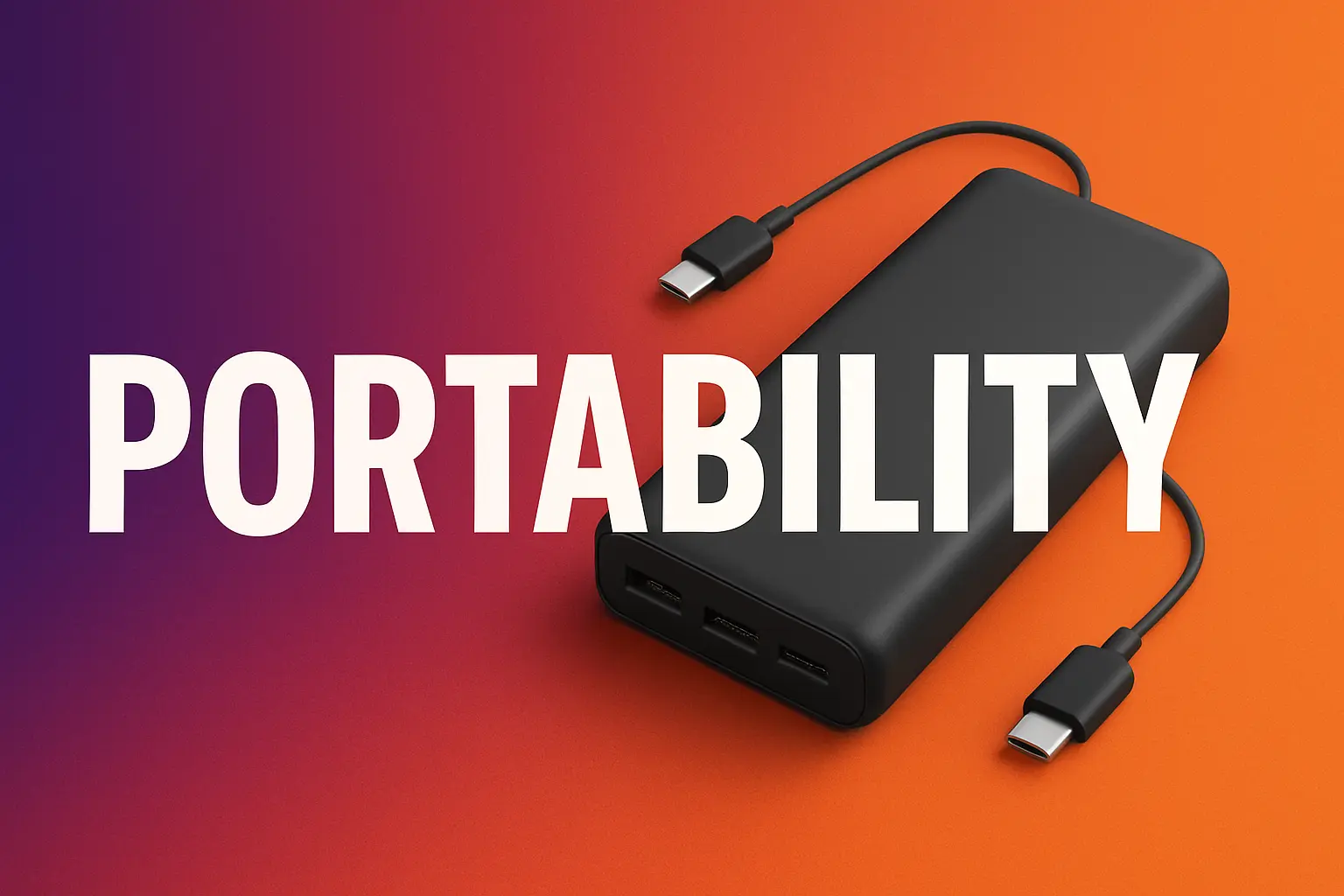
How Portable Does Your Power Bank Need to Be?
- Under 300g: Truly pocketable
- 300g–600g: Still portable, bag-friendly
- Above 1kg: Better suited for stationary use (e.g., in a car or home)
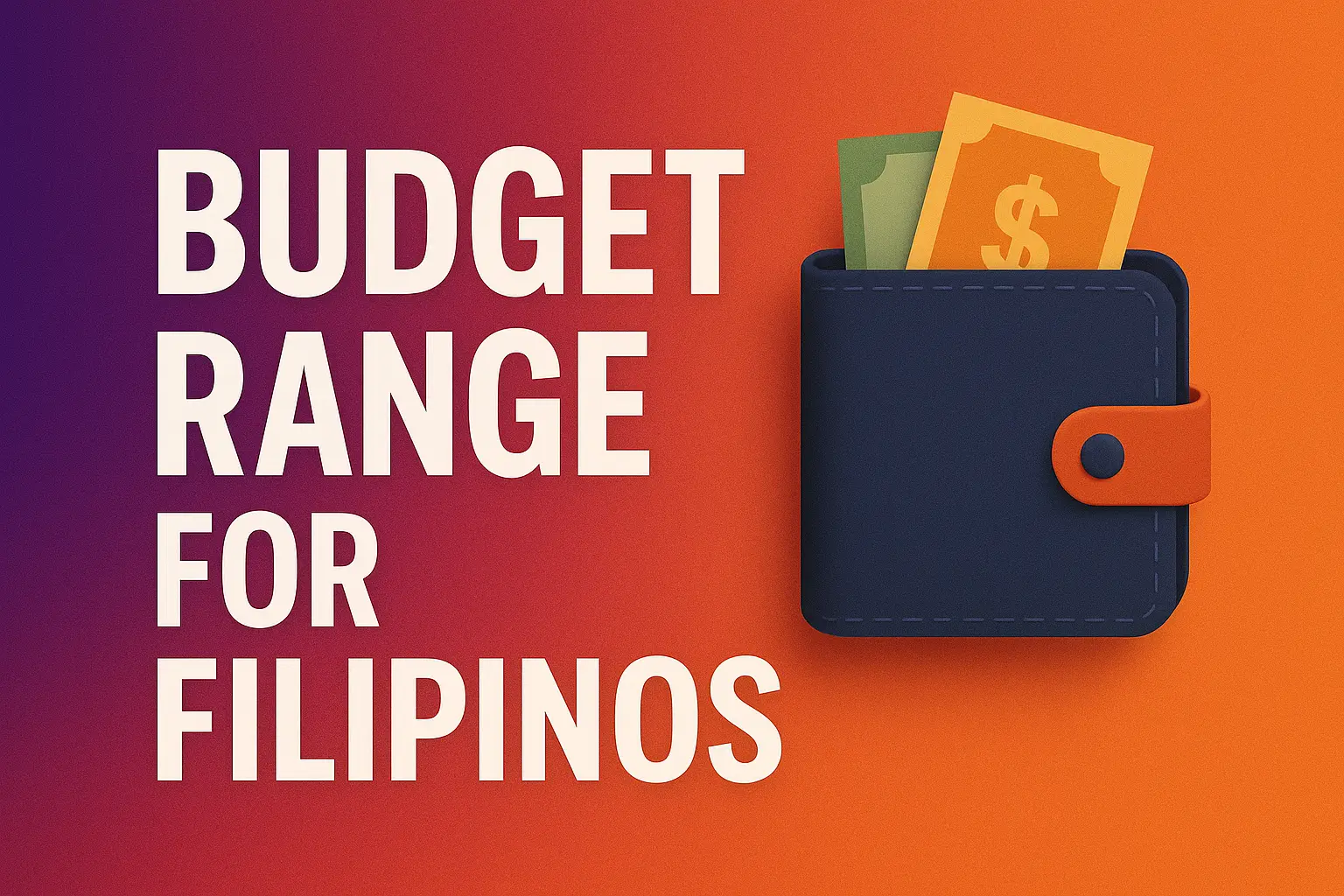
What’s Your Budget for a Power Bank?
| Tier | Price (₱) | Who it’s for |
|---|---|---|
| Entry-level | ₱599–₱1,199 | Students, budget-conscious buyers |
| Mid-range | ₱1,200–₱2,500 | Daily users needing performance |
| High-end | ₱2,600–₱5,000 | Power users and digital pros |
| Power stations | ₱5,000+ | Emergency preppers, off-grid users |
You can find great deals on Shopee, Lazada, or even through TikTok Shop—especially during monthly double-digit sales (like 6.6 or 11.11). Bundle promos are common too, where sellers throw in cables or phone stands. If you're unsure what terms like “PD fast charging” or “mAh” really mean, check out our guide to understanding key power bank features.
Comparison Table - Top Power Banks to Buy Online
| Product name | Product Image | Approx. price | Where To Buy | Capacity / port spec(“capacity port time”) | Battery life (rough guide)* |
|---|---|---|---|---|---|
|
Momax 1 ‑Power X Pro |
 |
₱ 2 290 | 5 000 mAh • USB‑C 20 W PD in/out • 15 W MagSafe wireless | ≈ 1 full phone recharge | |
|
Momax 1 ‑Power Pass |
 |
₱ 3 190 | 10 000 mAh • USB‑C 20 W PD • 15 W MagSafe wireless | ≈ 2 phone recharges | |
|
Orashare PCM20 Mini |
 |
₱ 1 100 | 20 000 mAh • 22.5 W fast (USB‑C + built‑in cables) | ≈ 4 phone recharges / ~48 h heavy use | |
|
AUKEY PB‑N74S Basix Plus |
 |
₱ 1 500 | 20 000 mAh • 22.5 W QC 3.0/PD 3.0 • USB‑C + 2 × USB‑A | ≈ 4 recharges / full‑day shoot | |
|
Promate PowerPod‑10 |
 |
₱ 1 995 | 10 000 mAh • 35 W PD (USB‑C cable) • 18 W QC USB‑A | ≈ 2 recharges (or ~30 % MacBook Air rescue) | |
|
Romoss PEP20 |
 |
₱ 1 300 | 20 000 mAh • 22.5 W PD/QC • USB‑C, USB‑A + 2 built‑in cables | ≈ 4 recharges / road‑trip | |
|
UGREEN MagFlow (Qi 2.2) |
 |
₱ 3,600 | 10 000 mAh • 25 W Qi 2.2 wireless • USB‑C lanyard‑cable + port | ≈ 2 recharges (wireless 0 → 60 % in ~15 min) | |
|
Rapoo RH20m Pro |
 |
₱ 900 | 20 000 mAh • 22.5 W PD/QC • built‑in Lightning + USB‑C cables + USB‑A | ≈ 4 recharges / lend‑to‑friends day | |
|
AUKEY PB‑N83S Basix Mini |
 |
₱ 1 235 | 10 000 mAh • USB‑C 20 W PD • USB‑A 22.5 W QC • pass‑through | ≈ 2 recharges / pocket carry |
Frequently Asked Questions answered by ProductNation Team

Can I bring a power bank on a plane?
Yes, you totally can — but there’s a catch. According to airline regulations, power banks must be under 100Wh (which is roughly 27,000mAh). Some airlines allow up to 160Wh with special approval, but anything higher will likely get confiscated at the security gate. So if you’re flying, stick to models like the Anker PowerCore III 10K or Romoss Sense 8P Plus.
Pro tip: Keep your power bank in your carry-on bag, not checked luggage.
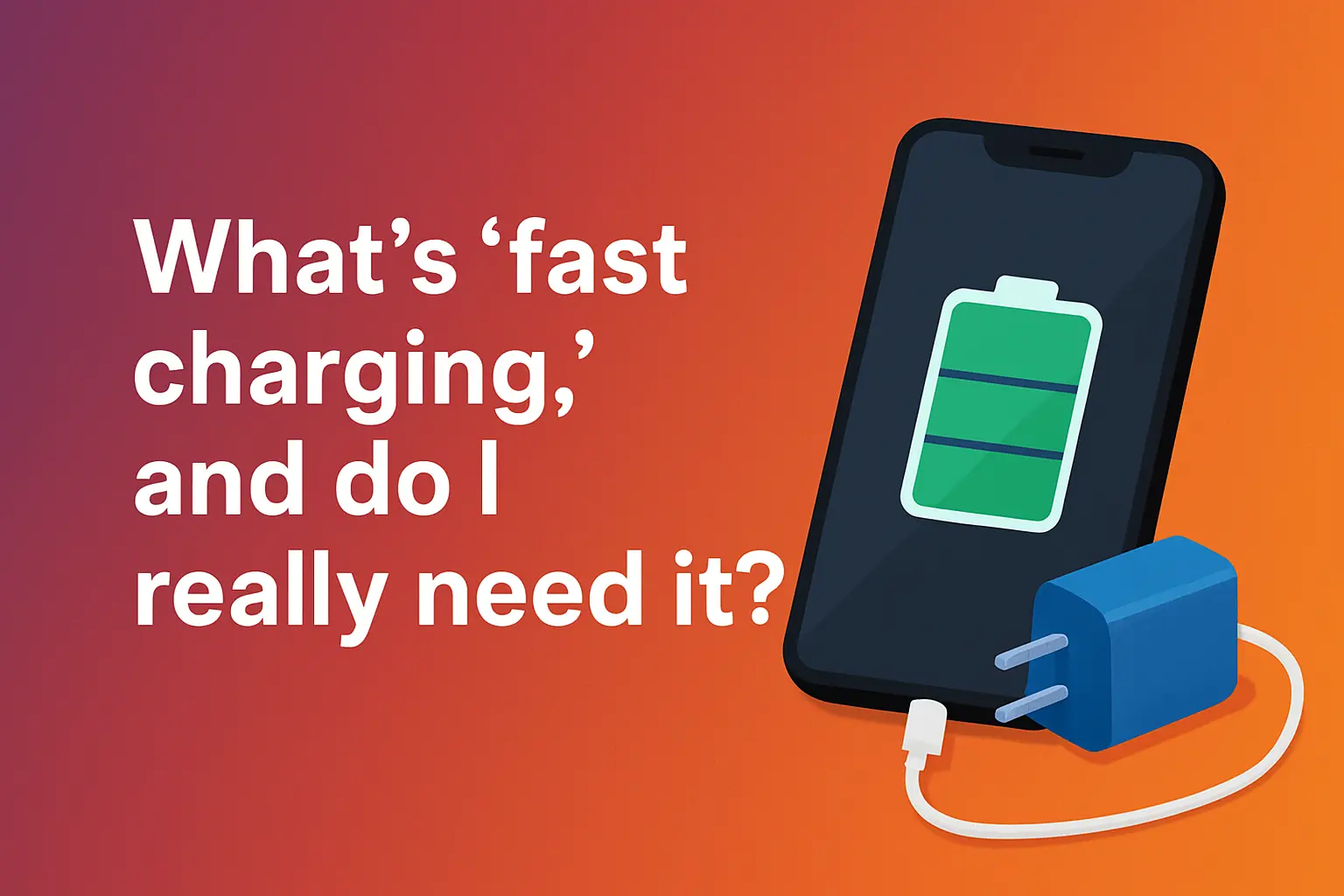
What’s “fast charging,” and do I really need it?
Fast charging means your device gets juiced up way quicker than the old-school trickle charge. If you’re always on the move or just don’t like waiting around, a power bank with PD (Power Delivery) or Quick Charge (QC) is a game-changer.
If your phone supports fast charging, you’ll want something like the Teclast A60 Pro (PD22.5W) or Anker MagGo 633 for MagSafe fast wireless charging. And if you are curious about the latest in fast charging, GaN tech, or pass-through charging? Check out our guide to the latest power bank technology.
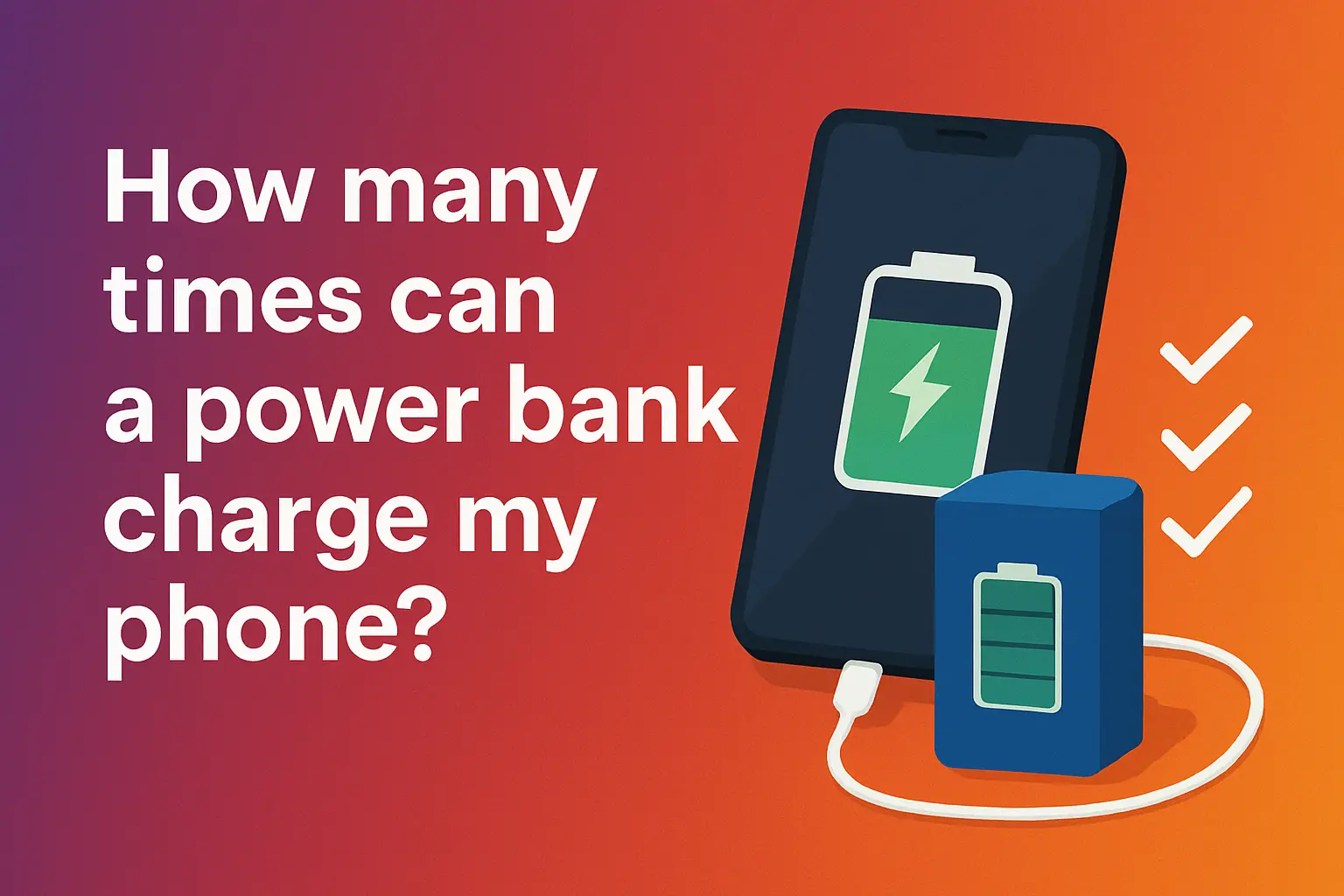
How many times can a power bank charge my phone?
It depends on two things:
- The capacity of the power bank (measured in mAh).
- The battery size of your phone.
Here’s a rough guide:
- 10,000mAh = 1.5 to 2 full charges
- 20,000mAh = 3 to 4 full charges
- 30,000mAh+ = 5 to 8 full charges (great for travel!)
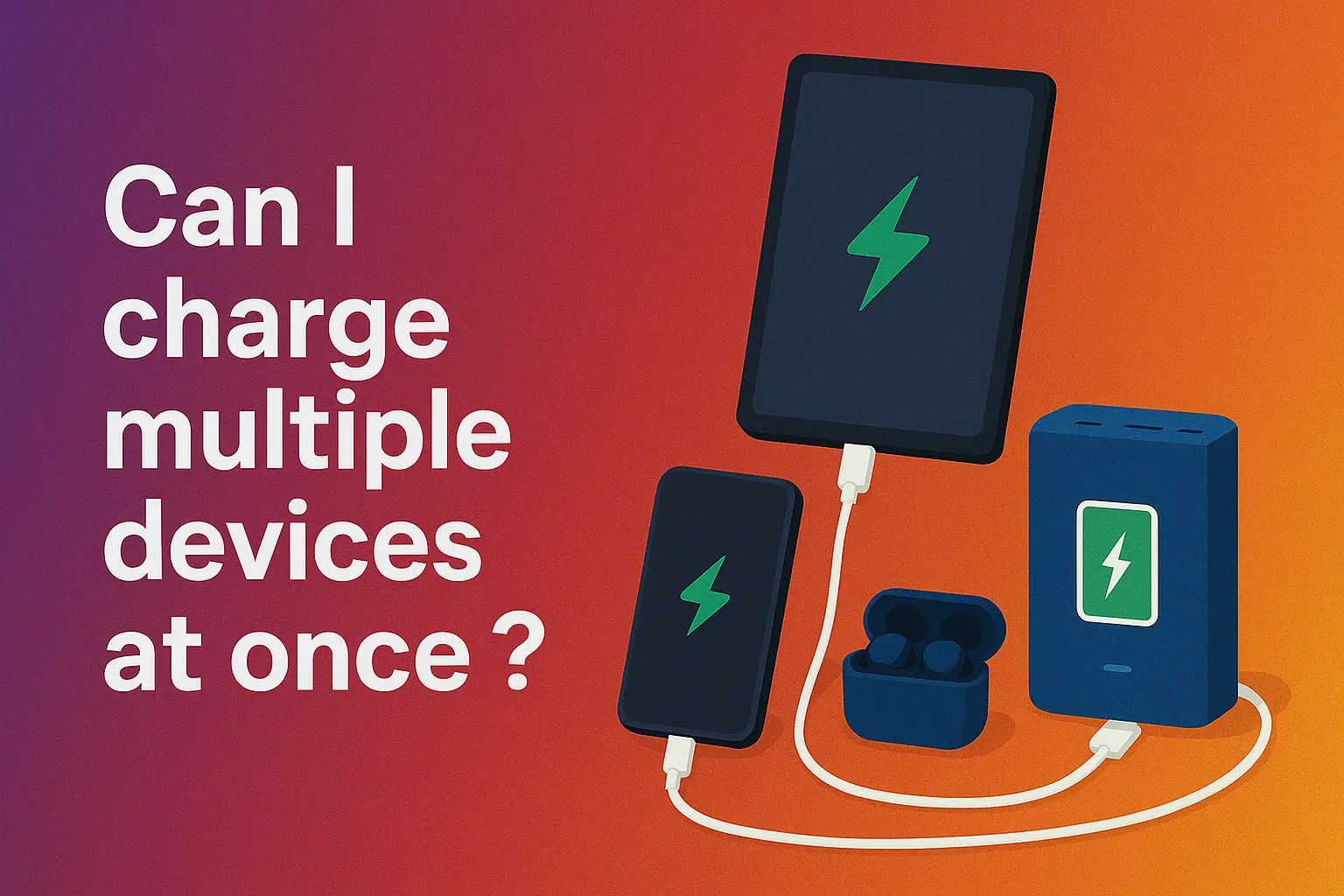
Can I charge multiple devices at once?
Totally! Most power banks now come with 2 or more ports, so you can charge your phone, earbuds, and maybe even your smartwatch all at once. Just keep in mind that charging multiple gadgets at the same time might slow down the overall speed unless the power bank is designed for high output — like the BAVIN PC021 or Rapoo S50 Pro.
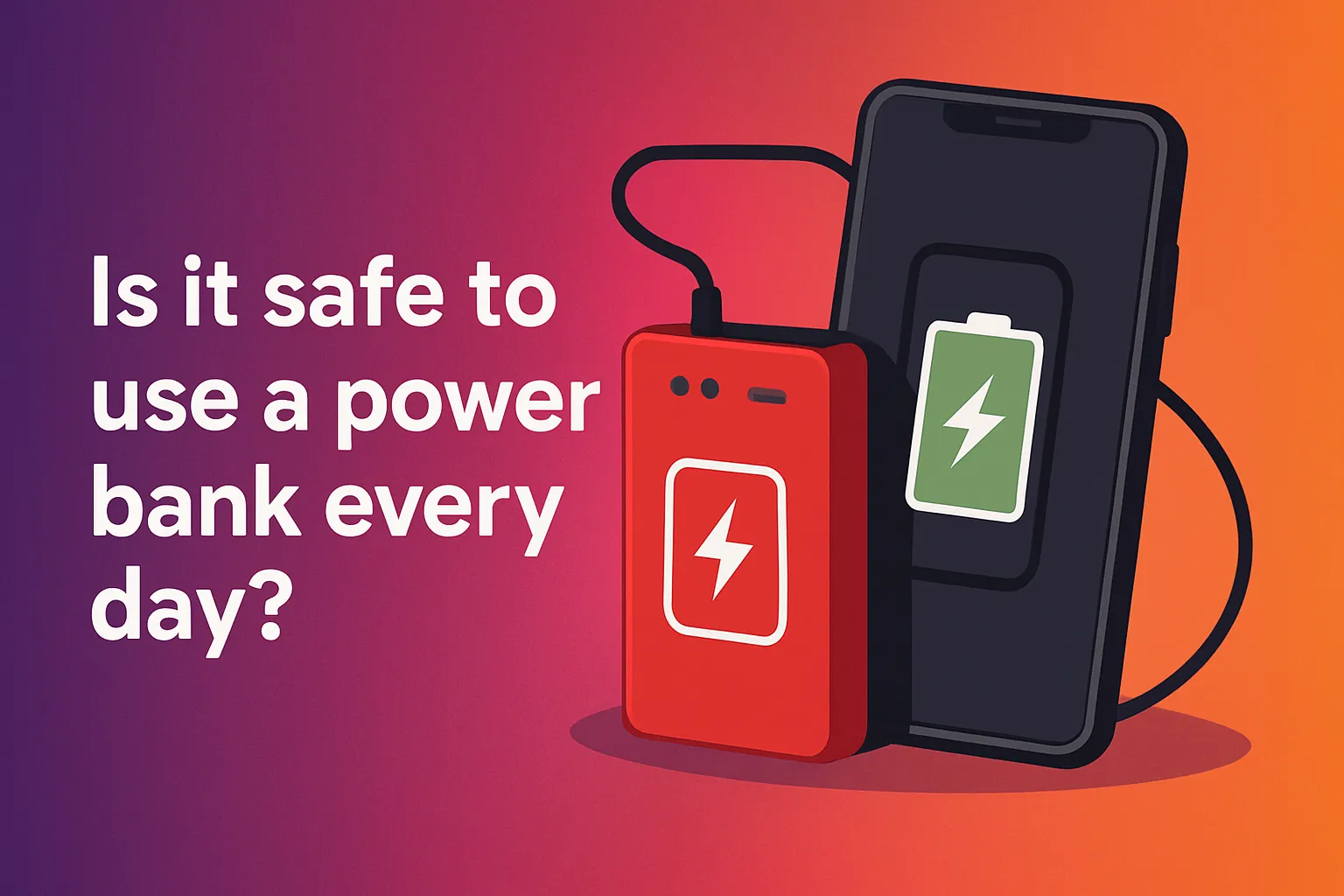
Is it safe to use a power bank every day?
Yes — as long as you’re buying from a reputable brand. Look for models with overcharge protection, temperature control, and auto shutoff. Avoid those sketchy, no-name power banks from bargain bins — they’re cheap for a reason.
Important Note: Safety is critical, especially for high-capacity or fast-charging devices. Make sure to check out our power bank safety tips before buying.
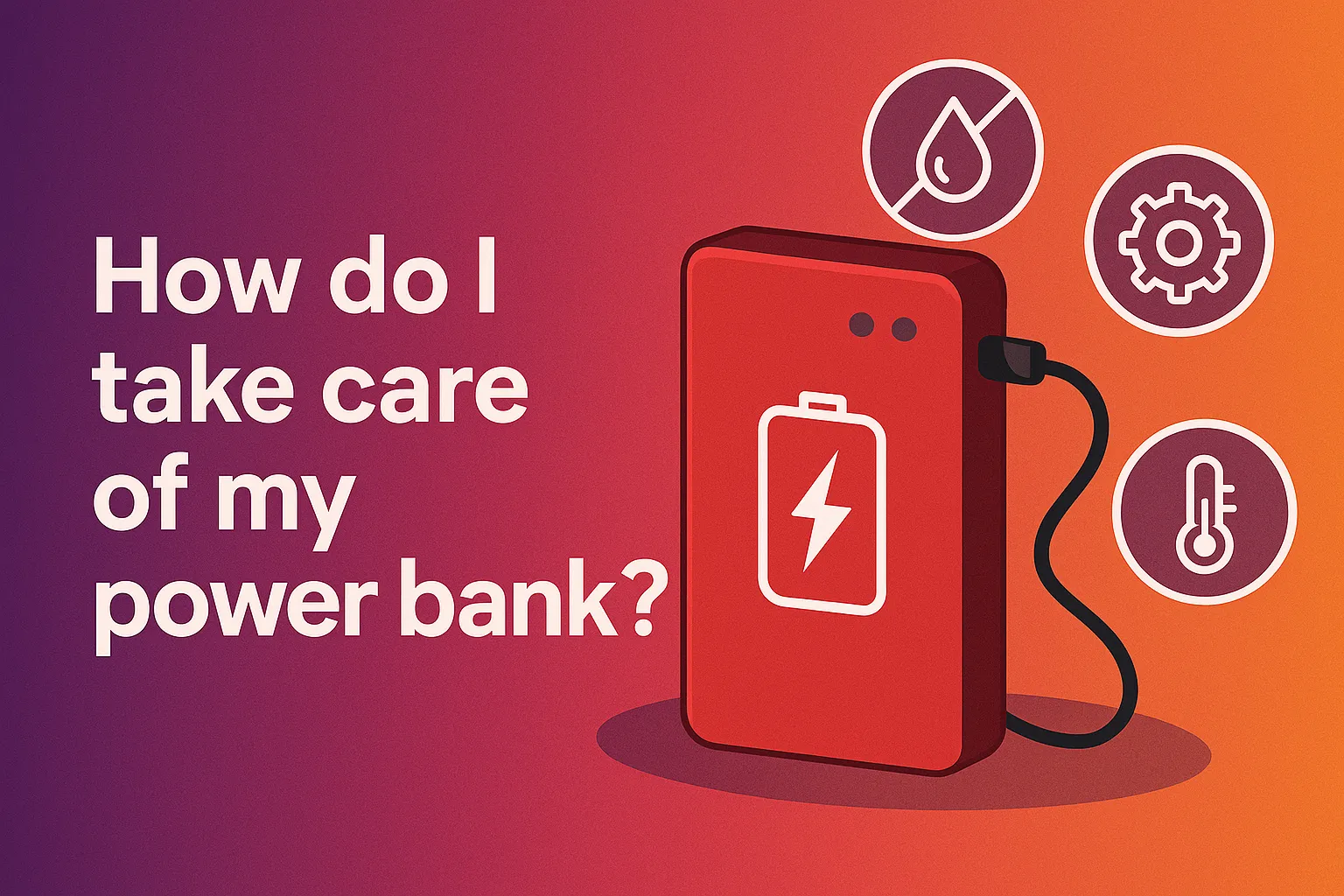
How do I take care of my power bank?
To ensure the longevity of your device's battery, it's crucial to handle it with care. Remember that the internal cells are sensitive, so avoid dropping it. Additionally, exposure to heat can be detrimental, making it a bad idea to leave your device in a hot car. Finally, even if you're not using the device frequently, charging it regularly, perhaps once every few weeks, will help keep the battery healthy.
List of Top 10 Power Banks in the Philippines 2026
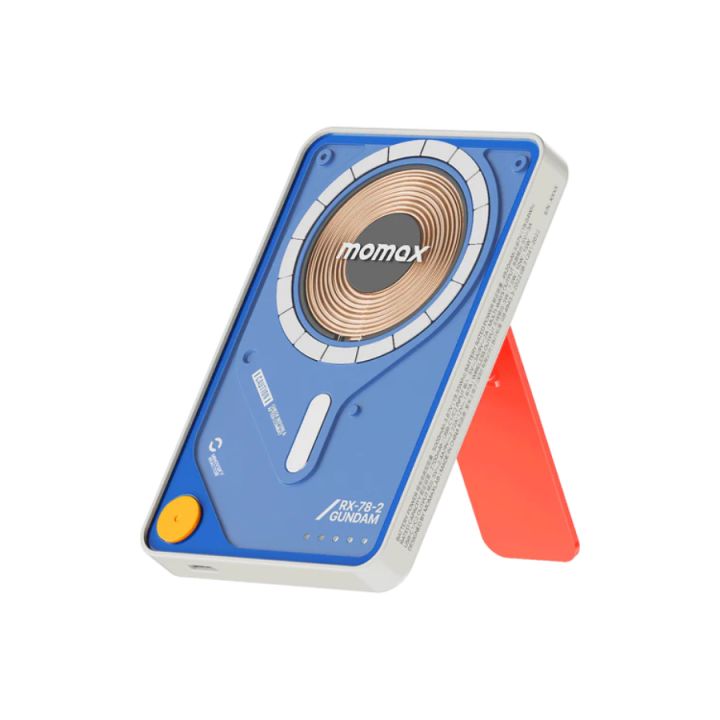
Mini‑verdict:
Think of this as a magnetic lifesaver for the morning rush. Snap it onto your iPhone at Outram Park, scroll TikTok to Woodlands, then slip the phone—and charger—back into a Uniqlo sling without fiddling with wires. The built‑in stand also props your phone up on a hawker‑centre tray so you can watch that last episode while demolishing char kway teow.
Key features
- Capacity & speed: 5 000 mAh, 20 W USB‑C PD, 15 W magnetic wireless
- Built‑in USB‑C cable & fold‑out stand
- Size/weight: 104 × 69 × 16.5 mm, 165 g
- LED ring shows charge level
Why we recommend:
Perfect top‑up after a full morning of emails; still slips into even the puniest side pocket.
User tip:
Dock at 50 % instead of 5 % to avoid overheating during wireless charging
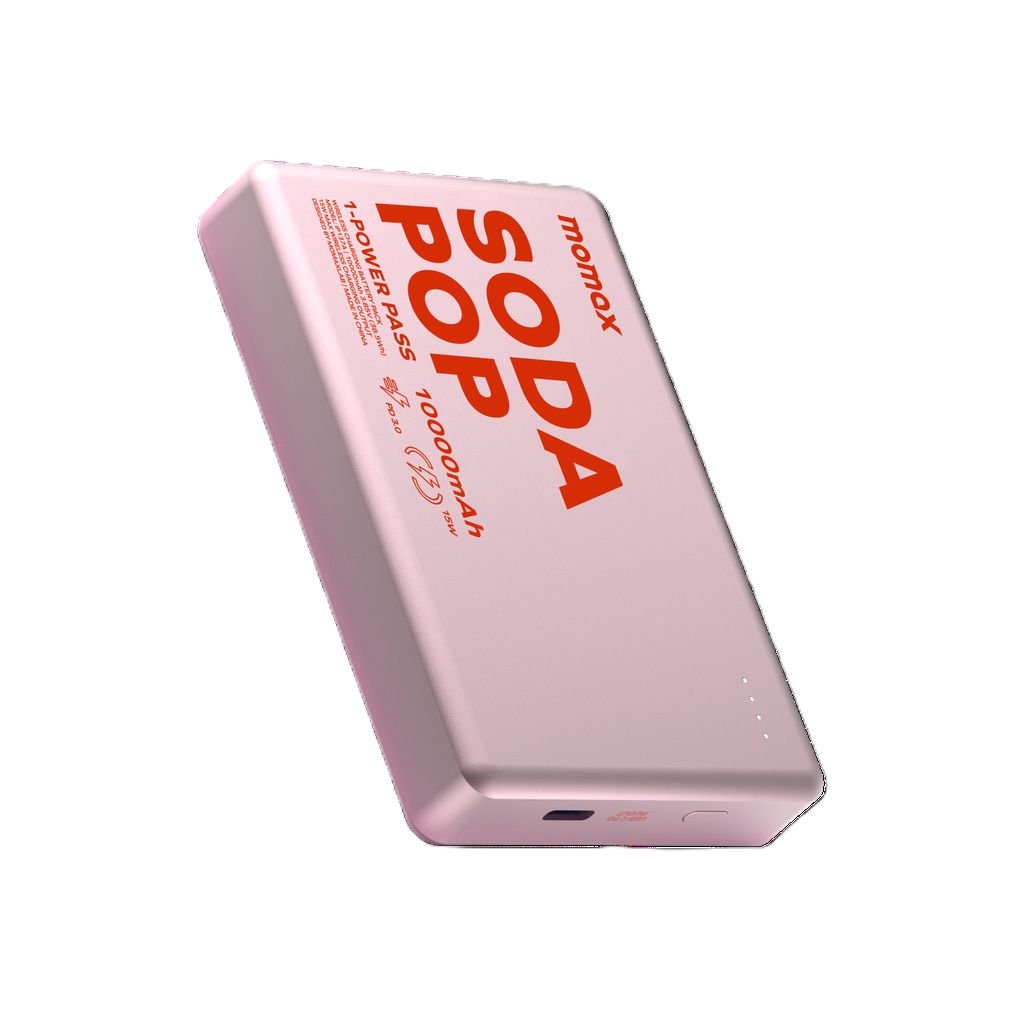
Mini‑verdict:
Take everything the X Pro does and double it—twice the capacity, twice the staying power, and yes, an ever‑so‑slightly chunkier chassis. It keeps going through long Zoom calls, two MRT rides, and a supper dash for satay at Lau Pa Sat without leaving you clutching a red‑bar phone. You’ll feel the extra grams, but you’ll thank them at 10 p.m. when everyone else is hogging the wall sockets.
Key features
- 10 000 mAh, 20 W PD + 15 W wireless
- Charge two devices simultaneously (USB‑C + magsnap)
- 200 g, 18.5 × 66.8 × 104 mm
- Aluminium shell for better heat dissipation
Why we recommend:
Survives a day of Teams calls and TikTok Lives without scrambling for sockets in co‑working hubs.
User tip:
Stick it to the phone inside your tote to avoid accidental detachment in peak‑hour shoves.
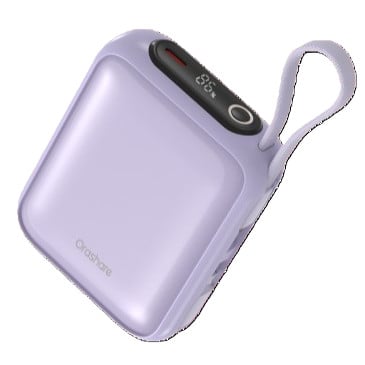
Mini‑verdict:
Don’t let the word “mini” fool you—this cube hides 20 k mAh and two built‑in cables disguised as a lanyard, making it the Swiss‑Army knife of power banks. Long shifts, GPS navigation, Spotify streaming, and passenger hot‑spots barely dent its reserves. Toss it into a glove compartment or clip it to your backpack strap and forget about battery anxiety for the next 48 hours.
Key features
- 20 000 mAh, 22.5 W fast charging, triple‑output
- Digital percentage display
- 94.6 × 73.4 × 29.2 mm, 190 g
- Flight‑safe (under 100 Wh)
Why we recommend:
Survives back‑to‑back Strava tracking and Bluetooth music on East Coast rides, then jump‑starts a GoPro.
User tip:
Sling the cable‑lanyard round a backpack strap—instant no‑drop charging on the go.
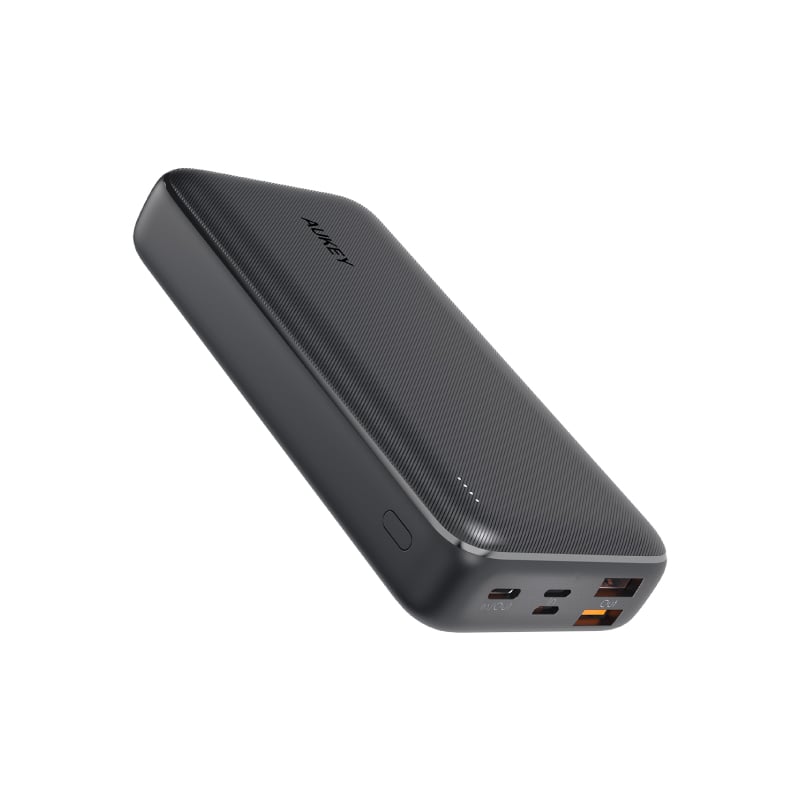
Mini‑verdict:
It looks like a plain black brick, and that’s exactly the point. This AUKEY chunk just works—steady 20 W output, no thermal drama, and enough juice for your phone, tablet, and mirrorless camera on a full‑day shoot at Gardens by the Bay. Design students may call it boring; road warriors call it reliable.
Key features
- 20 000 mAh, 22.5 W QC 3.0 / PD 3.0
- Three ports (USB‑C in/out + twin USB‑A)
- 386 g, 14.7 × 6.9 × 2.6 cm
- Street price ≈ S$70
Why we recommend:
Rock‑solid for video crews lugging gimbals—long, stable, and consistent.
User tip:
Pair with a 30 W GaN wall charger; full refill takes roughly six hours.
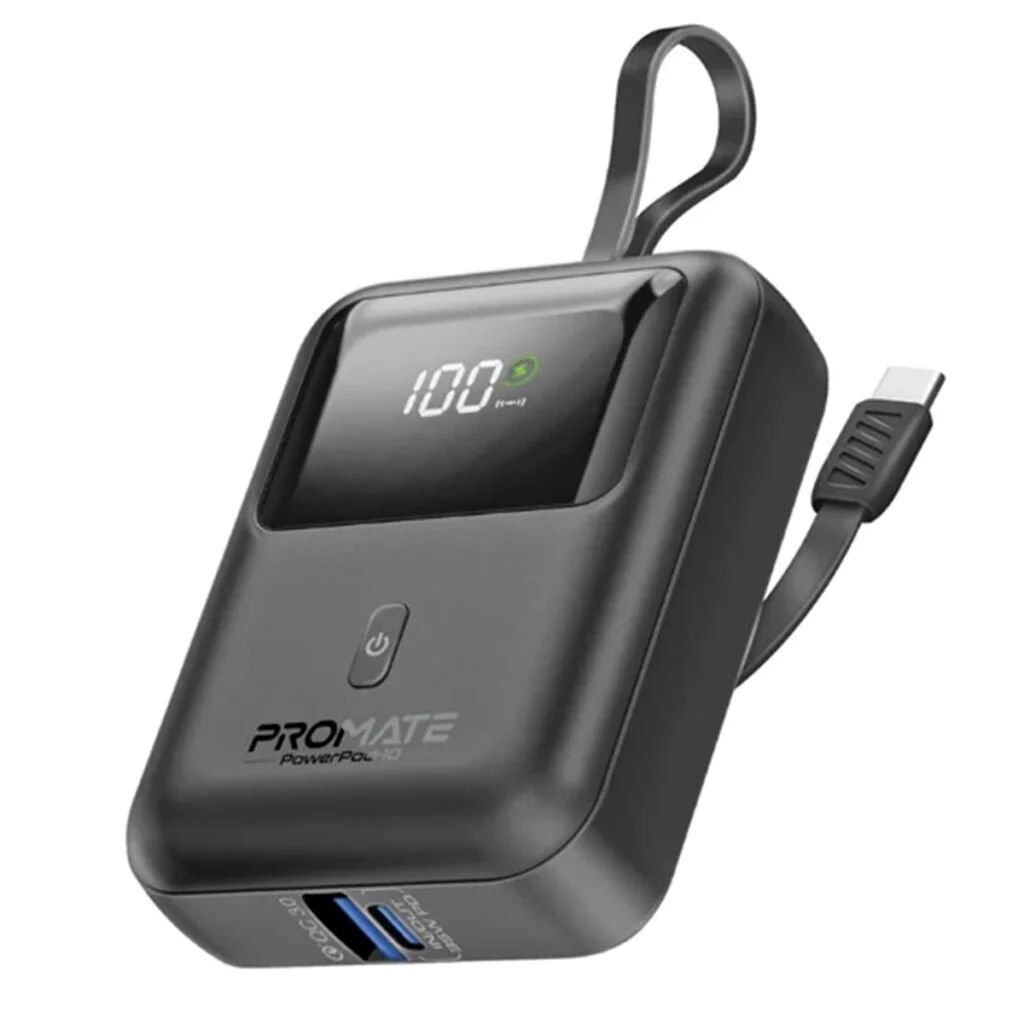
Mini‑verdict:
The Promate PowerPod is what happens when a pocket knife and a power bank have a baby. A retractable USB‑C cable clicks snugly into the frame, ready to juice your laptop in a pinch, your phone in a hurry, or your earbuds at the café. At just 135 g, you’ll forget it’s in your tote—until you realise everyone else is borrowing it.
Key features
- 10 000 mAh, 35 W PD 3.0 + 18 W QC 3.0
- Built‑in USB‑C cable + USB‑C port + USB‑A
- Smart LED screen with precise percentage
- 135 g, smaller than most wallets
Why we recommend:
One‑cable life—juice a MacBook Air in emergencies, then fold cable back into the body.
User tip:
Clip it with a cheap carabiner to your tote; the cable doubles as hanger.
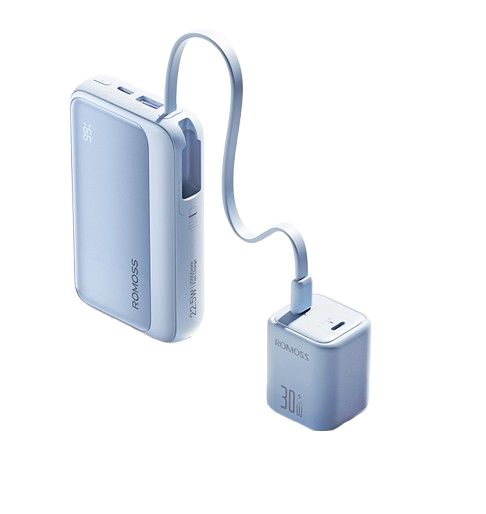
Mini‑verdict:
Big capacity, tiny price. During 9.9 or 11.11 flash deals this slab can drop under S$30, making it the ideal backup brick for family road trips. A bright LED matrix tells you exactly how many volts and amps are flowing, so you know which child’s iPad is hogging the current.
Key features
- 20 000 mAh, 22.5 W PD/QC, built‑in dual cable
- LED matrix shows %, volts, amps
- Four outputs (USB‑C, USB‑A, two cables)
- Weight ~420 g
Why we recommend:
Perfect spare brick in the boot—cables attached, battery big, price small.
User tip:
Activate slow‑charge mode for wearables (double‑press power button).
Pros
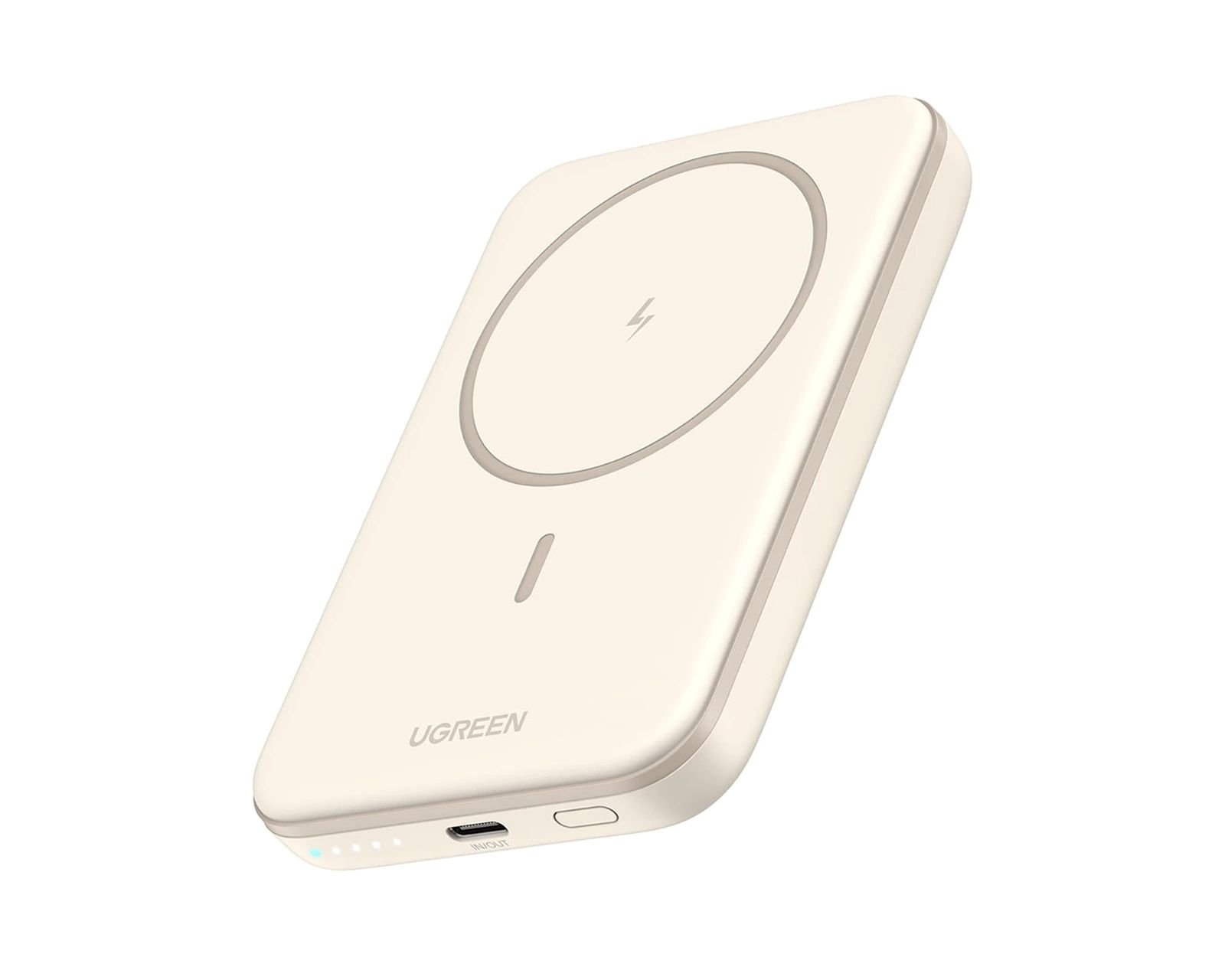
Mini‑verdict:
Not yet on shelves (launching Q3 2025), the MagFlow promises 25 W wireless speeds that could refill an iPhone 17 from 0 % to 60 % in roughly fifteen MRT minutes. If UGREEN’s claims hold up, this’ll be the go‑to pack for people who can’t bear dangling cables. Pre‑orders include a braided USB‑C lanyard that doubles as a wrist strap—nice touch for sweaty commute hands.
Key features
- Qi 2.2 wireless up to 25 W
- 10 000 mAh, braided USB‑C lanyard + extra USB‑C port
- Tiny OLED percentage display
- Expected price under S$80
Why we recommend:
Future‑proof speeds for next‑gen devices; great for cable‑less video streaming.
User tip:
Register on UGREEN’s website to snag early‑bird bundles with 100 W GaN chargers.

Mini‑verdict:
Rapoo squeezes 20 k mAh into a palm‑size block that’s lighter than many 10 k rivals. Built‑in Lightning and USB‑C cables plus a USB‑A port cover almost every gadget in your social circle. If you regularly lend power to friends, this is the friendly‑neighbour option—just be prepared for the occasional “eh, can borrow again?
Key features
- 20 000 mAh, 20 W PD + 22.5 W QC
- Built‑in Lightning & USB‑C cables + USB‑A port
- 88.8 × 60.5 × 26 mm, 192 g
- ABS‑PC shell
Why we recommend:
A multi‑talent loaner that works with nearly any phone someone thrusts at you.
User tip:
Long‑press power button to enable low‑current mode for smartwatches.

Mini‑verdict:
Credit‑card footprint, feather‑light feel, and pass‑through charging that lets you recharge the bank and your phone with a single cable overnight. Toss it into your jeans coin pocket in the morning, and you’ll hardly notice it—until the moment your battery bar turns red at 4 p.m. and you remember the little lifesaver tagging along.
Key features
- 10 000 mAh, 20 W PD (USB‑C) + 22.5 W QC (USB‑A)
- Four LED dots show charge
- 80.5 × 57.7 × 27 mm, 174 g
- Street price ≈ S$38
Why we recommend:
Smallest physical footprint here and supports pass‑through so it’s easy to keep topped up.
User tip:
Plug your phone into USB‑A first, then the bank into the wall—pass‑through prioritises the phone.
Conclusion
In this age of constant connection, a solid power bank isn't just a convenience—it’s a necessity. Whether you're dodging a sudden brownout, working on the go, or spending hours on social media, your portable charger is your best companion.
So, before your next 5% battery panic attack, invest in the right power bank for your lifestyle. With so many options—from the rugged Teclast A60 Pro to the stylish Anker MagGo—you’re sure to find your perfect power partner.
Related Articles:
- How to Choose the Best Power Bank in the Philippines
- Power Bank Features Explained: What You Need to Know
- Power Bank Safety Tips Every User Should Know
- The Latest Power Bank Technology in the Philippines


